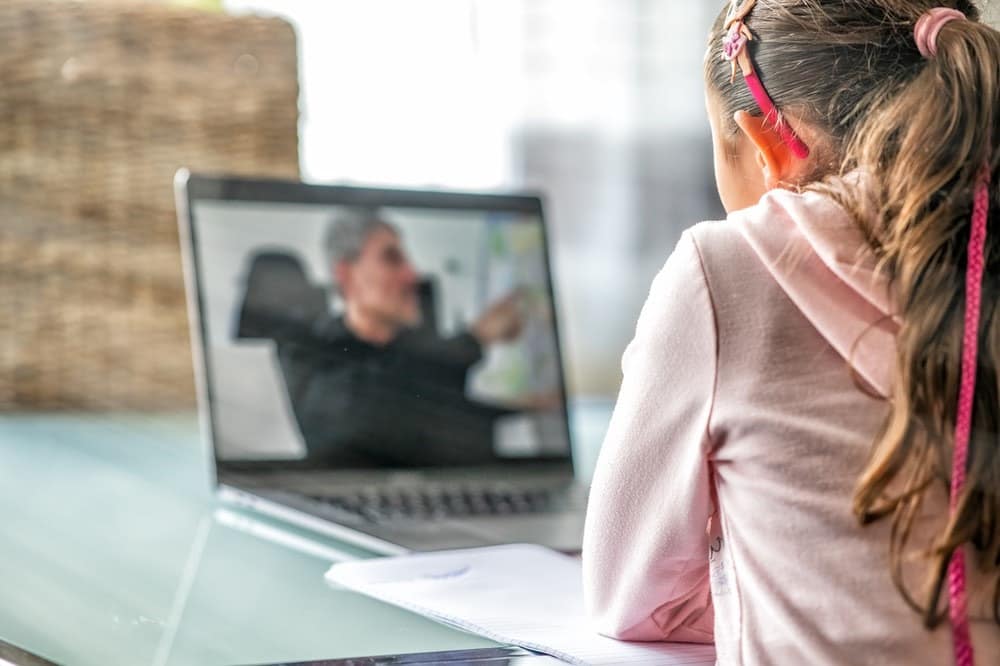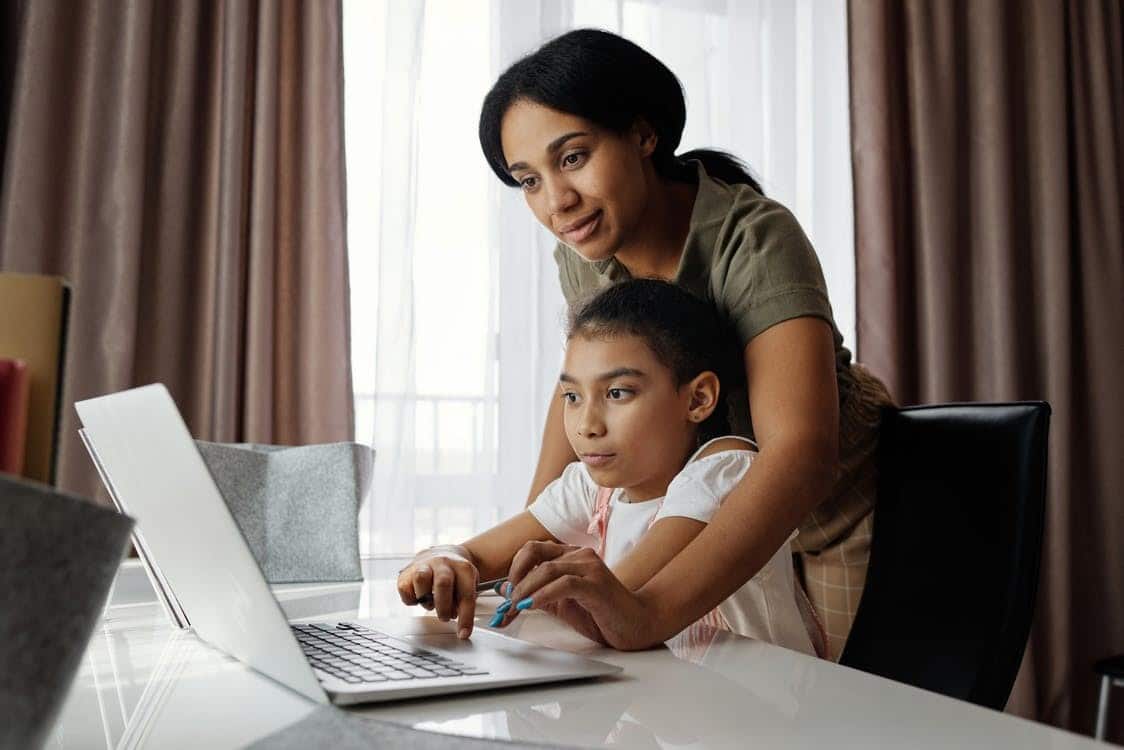At Cambridge Home School Online, we’re often approached by working parents who worry that the online schooling system isn’t suitable for their children. This concern is rooted in the assumption that parental intervention is necessary for online learning. In actuality, this isn’t true at all.
If you’re a working parent, you can send your children to online school without worrying about having to check in on them multiple times. This can be extremely challenging for parents who are handling clients, taking care of household chores, or managing other responsibilities. It’s impossible for parents to complete these essential tasks and actively assist their children during online classes.
We take this responsibility from your hands, so you don’t have to worry about multitasking beyond your capabilities. At Cambridge Home School Online, we provide a quality British online education to students living across the globe. We offer four homeschooling programs: Primary Prep/Key Stage 2 (ages 7 to 10), Lower School/Key Stage 3 (ages 11 to 13), Upper School/IGCSEs (ages 14 to 16), and Sixth Form/AS & A-Levels (ages 17 to 19).
Our MA/MSc/PhD qualified subject specialist teachers deliver focused, engaging, interactive, and retentive lessons. They also undergo extensive training that helps them master the art of keeping students engrossed in their lessons. This approach is lacking in most conventional (in-person) schools. Since the student-teacher ratio is particularly high, the teachers cannot provide individualised attention to each pupil. As a result, students easily get distracted.
In online schools UK, the risk of distraction is eliminated. This blog will shed greater light on how we achieve this. We’ll also take a deeper dive into why and how young students can attend online classes in the absence of their parents. Continue reading, take notes, and feel free to ask us any questions towards the end. Let’s dive into it!
Maintaining Student Focus

When parents first hear about online schooling, they immediately write it off, assuming they’ll have their hands full. We’ll help you understand why this isn’t the case. Effective online schooling is contingent on optimal student focus. If students don’t concentrate on their lessons and actively participate in class, they can easily get distracted. In such cases, parents are required to step in and help their children get back on track.
Unfortunately, this happens in a lot of online schools. The teaching approach isn’t effective, which results in students losing the gist of the class. Teachers aren’t equipped to reel distracted students back in. Eventually, parents have to take the reins and continually get distracted from their work, chores, and other responsibilities.
At Cambridge Home School Online, students as young as 7 confidently attend online classes without their parents. This largely has to do with our teachers and classroom size. Let’s discuss both. Our teachers go the extra mile to deliver compelling lessons. They use advanced online learning software systems and audio-visual teaching technology to engage students.
Recommended Read: 6 Online Teaching Strategies Employed at Cambridge Home School
We believe that high student concentration levels minimise the need for parental intervention. We ensure that parents aren’t bothered during their children’s classes by achieving this. If you’re a working parent, you’ll slowly appreciate this measure more and more.
At Cambridge Home School Online, parents frequently reach out to us, explaining how much our schooling system has benefited their children and themselves. Compared to parent-led homeschooling, institution-led homeschooling offers greater flexibility to parents. You don’t have to run after your children all day—at least during their online classes. Our teachers will keep things on track so you can go about your day and reconvene with your children once their online classes conclude for the day.
Let’s discuss our second measure: small classrooms (a low student-teacher ratio). We teach students in small groups of 8 to 10 pupils. This approach is very intentional. We believe that a high student-teacher ratio makes it impossible for teachers to track each student’s activity. If a pupil zones out of the lesson, their teacher may never notice if there are too many students in the classroom.
By reducing the number of students in each class, we equip our teachers with the ability to track their movements, interest, concentration levels, and participation. If there are any deviations, our teachers quickly identify them and help reel the students back in. This is extremely beneficial as parents can rest assured that a) their children will stay on track during their classes, and b) they will not be requested to intervene again and again.
Understanding the Structure of Online Classes

Many parents are sceptical about whether online classes can be effectively carried out without their involvement. To understand this better, it’s important to take a closer look at the structure of online classes. For young students (ages 7 to 10), we plan well-balanced, well-paced classes that lack the slowness of conventional classes. This plays a big role in keeping students on their toes.
We don’t let our classes get monotonous at any point. Students participate in active class discussions and engaging activities that demand their attention and energy, keeping the learning process going. Why is this approach important? It prevents students from getting bored or becoming fixated on something else.
In most online schools, students often lose focus and shift their attention to anything else in the room. We’ve often had parents reach out to us in awe as their children have remained engrossed in their lessons through and through. We largely attribute this to our teachers and the structure of our online classes.
Our teachers also plan group work to help students get to know each other and have meaningful interactions. These measures help students absorb and retain more knowledge. They also a) develop new skills, b) become curious, creative, critical thinkers, and c) develop an interest in a wide range of topics and subtopics.
As a parent, you’ll reap the benefits of our class structure as well. At our institution, parents often plan mid-year trips for their children. Since our classes are virtual, parents don’t have to worry about disrupting their children’s schooling routine.
Last year, a parent reached out to us towards the end of their daughter’s school year. They thanked us for offering a well-structured homeschooling program. The British-French family had been planning a trip to France that year. After putting their vacation on hold for two years because of the pandemic, they were able to visit France and help their children have a diverse experience.
The parents thanked our institution for keeping their daughter’s education on track during their vacation. This is indicative of how well-planned our classes are. Whether you go on a family vacation or make arrangements for the classes to be held anywhere else, you can rest assured that your children will remain focused, attentive, and engaged.
We take this responsibility seriously. If, at any point, a student is getting distracted, our teachers use an empathetic approach to help them get back on track. This significantly improves student performance across all homeschooling programs. Whether your child is 7, 12, or 18, they’ll perform exceptionally well in school. Our track record reflects this.
In June 2021, 86% of our IGCSE students secured A*s and As in their target subjects. 83% of our A Level students secured two As and a B or higher, as requested by top universities. Moreover, all students who applied received offers from some of the best universities globally. By delivering balanced lessons, we help students of all ages achieve impressive academic success.
Our students also perform well in other avenues of their life: sports, extracurriculars, volunteering, etc. While we double down on academic growth, we also focus on personal development, social growth, moral enrichment, and ethical maturation. Our students become responsible, well-rounded individuals.
Recommended Read: 3 Science Activities You Should Plan for Your Children
What Are Parents Expected to Do?

Now that you have a better understanding of how we make it easier for children to attend online classes in the absence of their parents, let’s understand what parents are expected to do. We encourage parents to assist their children with homework and revision once their classes end for the day. This isn’t necessary. However, it’s strongly encouraged to help students develop an academic edge.
Regular homework and revision play a big role in cementing critical concepts in a pupil’s mind. If students simply attend their classes and fail to engage with the course materials, their progress will be affected. To prevent this from happening, sit down with your children and go over their learning for the day. They’ll get a much-needed refresher, and you’ll keep abreast of their progress at school.
As a parent, you will also be required to set up your children’s online classes. This isn’t necessary for older students. However, if your child is between the ages of 7 and 12, make sure you help set up their study station and start their classes for the day. Within a few weeks, students learn the ropes themselves. However, pre-class supervision is still required for younger students.
Make sure their study room does not include any distractions. Parents often make the mistake of setting up their children’s study stations in their bedrooms. This approach is understandable for older students as they have greater self-control. However, young children have a shorter attention span and lack the same level of self-control. If their favourite action figures are in the same room, they may get distracted and start playing with them.
There’s a lot that can go wrong if your child’s bedroom is replete with one distraction after the other. Nip this in the bud by setting up a separate study space for them. You can also use their bedroom as long as you assiduously remove all major distractions from the space. Since this can be fairly difficult and tricky, it’s best to use a different space altogether.
At Cambridge Home School Online, we provide parents with 24/7 access to their children’s coursework. We also hold three parent-teacher consultations (one each year) to know exactly how your child is doing. This valuable information goes a long way in helping parents track their children’s performance across different avenues.
Lastly, we also encourage parents to maintain a healthy, wholesome environment at home. Since your children are attending online classes from home, they cannot associate their space with feelings of hostility, fear, or discomfort. If this is the case, the learning process will be affected. Make sure your children feel content in their homes. This will boost their overall well-being, helping them commit to their studies.
Making the Switch to Online Schooling

Are you considering making the switch to online learning for your children? Incepted in 2002, we have over 20 years of experience as an institution. At Cambridge Home School Online, we go the extra mile to help students succeed.
We also help parents heave a big sigh of relief. By planning well-structured, balanced, and engaging classes, we absolve you of the responsibility of checking in on your children frequently during their classes.
If you’re interested in applying to our institution, please explore the following pages:
- Admissions Process
- Term Dates
- Application Form
- Scholarships & Bursaries
- Grades & Fees
- Online Reviews
We provide a quality British online education to students in the UK, Europe (including Western Russia), Central Asia, the Middle East, and Africa. We’re continually expanding our program so if you don’t see your country listed on our website, reach out to our education specialists. There’s a high chance that we’re working on reaching your country or have already added it to our list!
Let’s start securing a better and brighter future for your children. In the meantime, we’ll offer the autonomy you need to tend to chores, responsibilities, and work without worrying about being interrupted from time to time. For more insight, check out our recent homeschooling guide for parents.
—
FAQ
Do working parents need to be actively involved in their children’s online classes at Cambridge Home School Online?
No, working parents do not need to constantly monitor their children during online classes. The school takes the responsibility of engaging students and maintaining focus, allowing parents to concentrate on their own work and responsibilities.
What age groups are catered to at Cambridge Home School Online?
The school offers four educational programs: Primary Prep/Key Stage 2 for ages 7-10, Lower School/Key Stage 3 for ages 11-13, Upper School/IGCSEs for ages 14-16, and Sixth Form/AS & A-Levels for ages 17-19.
How does Cambridge Home School Online maintain student focus during classes?
The school employs MA/MSc/PhD qualified teachers who are experts in engaging students. Classes are conducted in small groups of 8-10 students, allowing for individual attention. Advanced online learning systems and audio-visual technology are used to maintain high levels of student engagement.
Are parents expected to help with homework and class setup?
While it is not strictly necessary, parents are encouraged to help their children with homework and revision. For younger students, ages 7-12, parents may need to help set up the online class environment.
Can classes continue effectively if a family goes on a vacation?
Yes, since the classes are online, students can continue their education without disruption, even if the family is on vacation. The school’s well-planned, flexible structure allows for such contingencies.